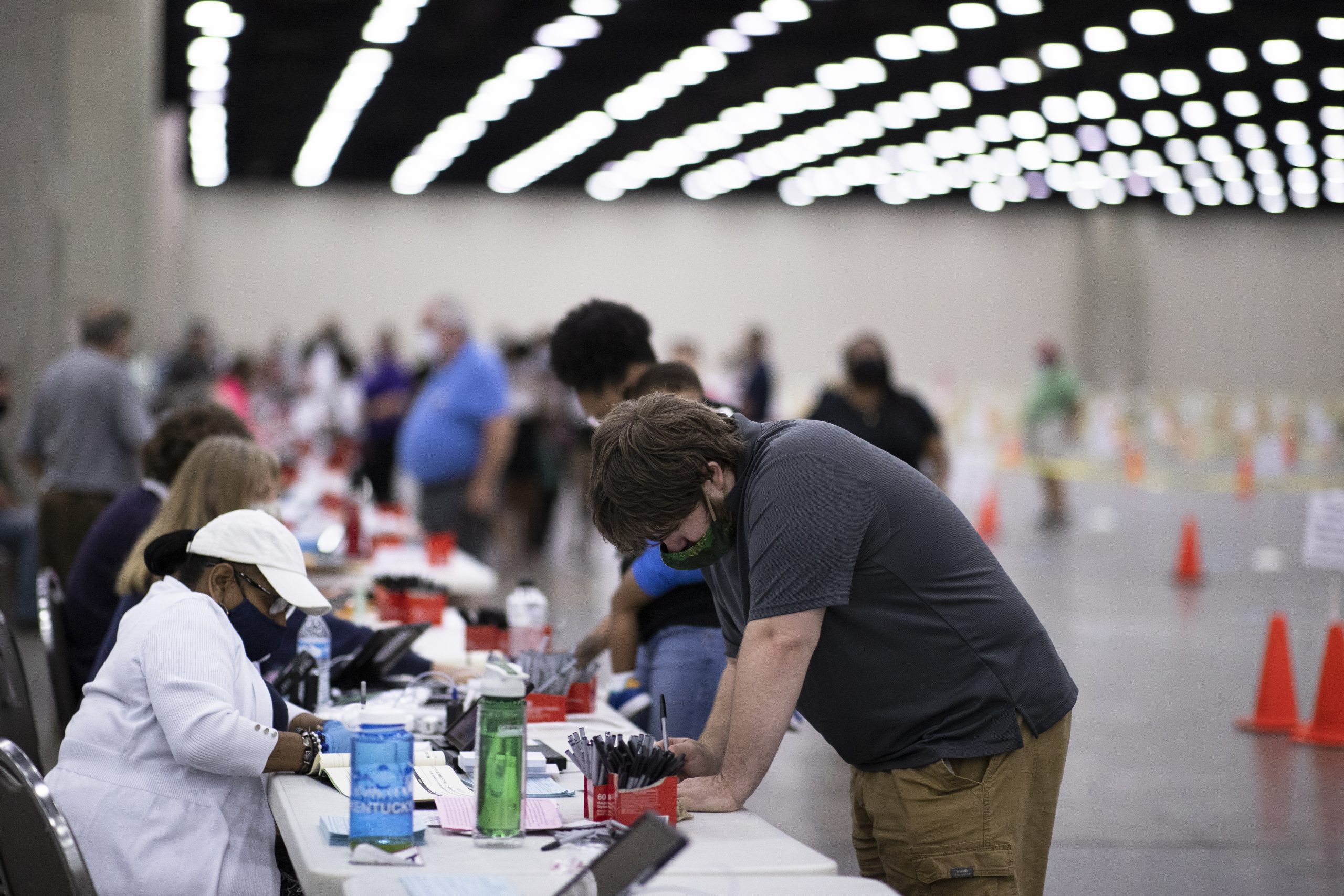
Earlier this week, Kentucky, New York, and Virginia held primary elections. These were significant for two reasons. The first is that they ushered in some real, and really substantive, change. In New York, for example, House Foreign Affairs Committee chair Eliot Engel appears to have been ousted by Jamaal Bowman, a progressive former school principal. And in Kentucky, at time of writing, Charles Booker, who is black and proudly progressive, has a narrow lead over Amy McGrath, a moderate white woman and fundraising powerhouse; the two are running to be the Democratic candidate to take on Senate Majority Leader Mitch McConnell.
But the results were not the only important element to emerge from the primaries. The challenges that people faced trying to cast their votes this past Tuesday are not only concerning in and of themselves, but also because it all bodes ill for a certain Tuesday this November.
First, there were the mail-in ballots. The pandemic meant that vote by mail was increasingly relied upon. But in New York, for example, vote-by-mail requests overwhelmed the city’s elections agency, and some New Yorkers complained about not receiving the ballot until election day – that is, after the deadline by which it needed to be postmarked.
There’s also the reality that not everyone who could vote by mail is necessarily comfortable doing so, said Quentin James, founder and president of The Collective PAC, which works to address the under-representation of African-Americans in elected seats of power throughout the United States.
[See more: “Imagine the damage a president could cause”: What would happen if Trump refused defeat?]
Expanding voting by mail isn’t meant to suppress votes; in fact, it’s meant to help more people to vote. Still, James says, “Black voters have reticence in trusting vote by mail.” In some cases, and particularly for older black voters, going in person to vote is almost sacred in nature, as it wasn’t something that they could do for part of their lives. There may also be some distrust around the mail – who’s dropping it off and picking it up? And even the way we talk about voting, James said, is about going in person.
James’s assertion is backed up by data: according to the Brennan Center, which examined 2016 voter-file data from seven battleground states, white voters use mail-in ballots more often than black voters.
“All of that plays a part in why there’s a little bit of a mistrust,” James said. Vote by mail should continue for the November election, he believes, but added: “I think we need to continue to do additional education.”
Voting by mail was not, though, the most high-profile incident of voter suppression, intended or otherwise, on display Tuesday. In Kentucky’s Jefferson County, which has over 700,000 residents, most of whom are black, officials made it such that there was only one polling station. The idea, it was said, was that it would be safer to vote in a pandemic in this one large building.
But come Tuesday evening, would-be voters were locked outside the Kentucky Exposition Center. The rule is that voters had to be in line by 6pm in order to vote, but some were sitting in traffic, waiting in cars to get to the line. In response to this, Jefferson County Clerk spokesperson Nore Ghibaudy said: “People are supposed to be in line by 6 by Kentucky law. Not just in the lobby to be in line.”
[See more: What would it mean for US foreign policy if Eliot Engel loses his primary race?]
Kentucky was nevertheless on track for a historic primary turnout. That doesn’t mean, however, that the challenges to voting weren’t real. The hashtag “all eyes on Kentucky” went viral ahead of the primary, in large part through the effort of The Collective PAC in conjunction with local organisations like the Louisville Urban League, the Louisville Chapter of the NAACP, and Kentuckians for the Commonwealth.
“That’s the purpose of having attention and having focus,” James said: that people know they have a right to vote and come out to exercise it, and that officials know that they’re being watched.
There’s also a third way in which Tuesday’s elections are a warning for November’s: numerous races – again, including the Democratic primary in Kentucky – couldn’t be called on election night. Pundits had to hold off on making calls, in some cases announcing that they wouldn’t be ready until July.
They’ll need to get used to it. In all likelihood, November’s presidential election won’t be able to be called on the night. It benefits all Americans to understand that the results are no less legitimate because of it.
[See more: Trump may have just endured a comically bad week, but that doesn’t make him a joke]





